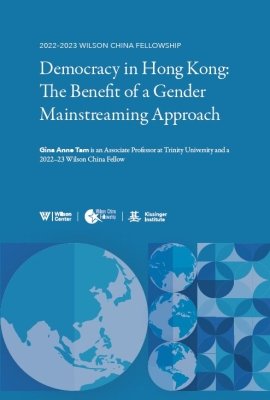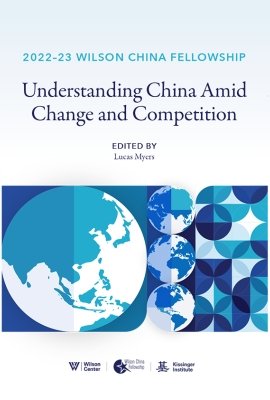Gina Tam
2022-23 Wilson China Fellow
Professional Affiliation
Associate Professor of Modern Chinese History and the co-director of Women and Gender Studies at Trinity University in San Antonio, Texas
Expert Bio
Gina Anne Tam is an Associate Professor of Modern Chinese History and the co-director of Women and Gender Studies at Trinity University in San Antonio, Texas. Having completed her doctorate at Stanford University, her research focuses on how the identities we ascribe to ourselves or are ascribed to us-- including gender, national identity, race, ethnicity, and class-- translate into access or the removal of access to cultural, political, and material power in modern China. Her first book, Dialect and Nationalism in China, winner of the Berkshire Conference of Women Historians Best Book Prize, explores the relationship between language and national identity from the late Qing dynasty through the height of the Maoist period. In addition, her research and commentary has appeared in several venues. She has published several peer-reviewed articles in publications such as Twentieth-Century China and Comparative Studies in Society and History, has appeared live on BBC and France 24, and has written for mainstream publications such as Foreign Affairs, The Nation, and Dissent. She is currently a Public Intellectual Fellow at the National Committee on US-China Relations.
Wilson Center Project
Women Activists and the Fight for a Democratic Hong Kong, 1950-2019
Project Summary
Women Activists and the Fight for a Democratic Hong Kong, 1950-2019 narrates the history of women who shaped democratic movements in Hong Kong in the postwar period. It argues that, because Hong Kong women were subject to starkly unequal treatment by both state institutions and the predominantly male activists protesting those institutions, they understood and fought for democracy in ways that differed starkly from their male counterparts. The unique philosophies and strategies these women created in the face of their alienation from mainstream politics were vitally important to the trajectory of Hong Kong's democracy movement. From protests for fairer wages and workers rights in 1950s and 1960s, student activism in the 1970s, to the post-handover protests, including the anti-extradition bill protests of 2019, this sweeping portrait of women activists spotlights crucial, neglected voices while also emphasizing how structural power inequities affect both how women imagine a democratic society and why they are often closed off from full participation in it.
Insight & Analysis by Gina Tam
- Publication
Democracy in Hong Kong: The Benefit of a Gender Mainstreaming Approach
- By
- Gina Tam

- Publication
Executive Summary - 2022-23 Wilson China Fellowship
- By
- Matthew Erie,
- Kyle Jaros,
- Mao Lin,
- and 12 more

- Publication
2022-23 Wilson China Fellowship: Understanding China Amid Change and Competition

- Past event
- Strategic Competition
Wilson China Fellowship Conference 2023



